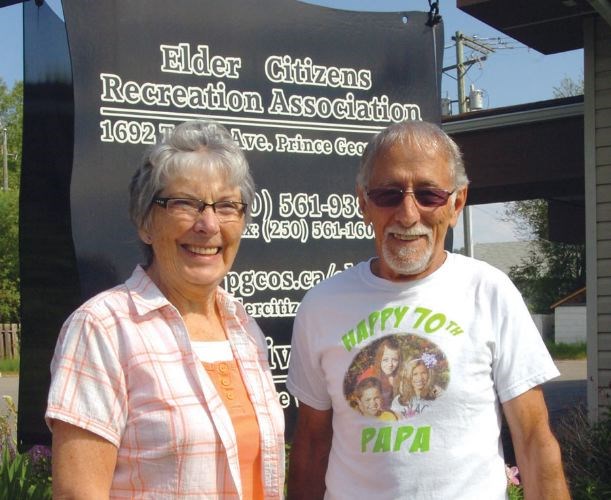The gift of a device that could save the life of someone suffering a heart attack at the Elder Citizens Recreation Association could also put seniors at legal risk if something went wrong, according to the ECRA board.
The Automated External Defibrillator (AED) from the Heart and Stroke Foundation came with a 16-page contract that says the seniors' group is completely liable for it and any results it might cause, which doesn't sit well with ECRA president Dave McGraw.
The ECRA will be completely responsible for the AED unit, its maintenance, theft, damage, and replacement, the contract states, releasing the Heart and Stroke Foundation from all liability as a result of its presence in the facility or its use.
Furthermore, the ECRA would have to get 'commercial general liability on an occurrence basis, including for personal injury, death and property damage, and contractual liability, with limits of liability of not less than $2 million'.
"We had a board meeting yesterday and we have a couple of concerns -- one of them is the insurance cost," said McGraw. "Because we're a non-profit and this is an unexpected expense, it would be hard for us to find extra insurance money in the budget."
He would like to postpone the defibrillator's installation until the fall, once more seniors return from their summer break.
"Right now we're having a hard time finding volunteers for our kitchen so we will be writing the Heart and Stroke lady a letter hoping to convince her to do this in September or October -- once we find out about the insurance cost because we'll be leaving ourselves open for lawsuits and that's what we're concerned about."
The letter the Heart and Stroke Foundation sent to the Elder Citizens Recreation Association stated that there are four AEDS slated to come to Prince George in the next two years and will be placed in municipal venues like recreation centres, pools and arenas where there is an increased risk of someone going into cardiac arrest.
The letter also stated that AEDs are safe and designed so that anyone can use one if they see someone suffering from sudden cardiac arrest. Despite the offer to bring in B.C. Ambulance paramedics and other medical service providers to conduct defibrillator training, McGraw is still concerned.
"We're all scared about this," said McGraw. "We don't know about any benefits so far of having this in the building."
Scot McMillan, occupational health and safety advisor for the City of Prince George, offered up the centre as an ideal location to put in an AED. The association is wondering if there might be a way the city could take responsibility for the AED but there's been no response yet.
There are dozens of defibrillators placed throughout the city already, McMillan said.
"We've got them at the library, the civic centre, the aquatic centre and arenas because they are a live-saving tool. They are about as harmful as a cell phone," said McMillan. While these defibrillators are in city-owned, city-operated facilities, the ECRA is a volunteer-based, non-profit organization that operates in a building owned by the city.
Modern defibrillators are designed to be foolproof. The latest models can be used by virtually anyone and the machine speaks to the operators, McMillan said. The machine analyzes the heartbeat and the machine decides if it's appropriate to shock. It can't shock a healthy heart.
Furthermore, the Good Samaritan law offers legal protection for people who aren't employed as emergency responders. Under the law, they can't be sued for damage caused by trying to provide emergency medical assistance.
That background did not accompany the letter notifying the ECRA about the arrival of the defibrillator.
But even the legal protection doesn't ease McGraw's concerns.
"We are all seniors here, using this thing could cause them to have heart attacks, so you have to watch who we actually let take the course to use the AED in an emergency," he said. "We know we should have it because it's a seniors place but yeah, it's scary all right. They should have started with the positive side of it instead of throwing it out there and saying this is what you're going to get and somebody has to sign for it."


